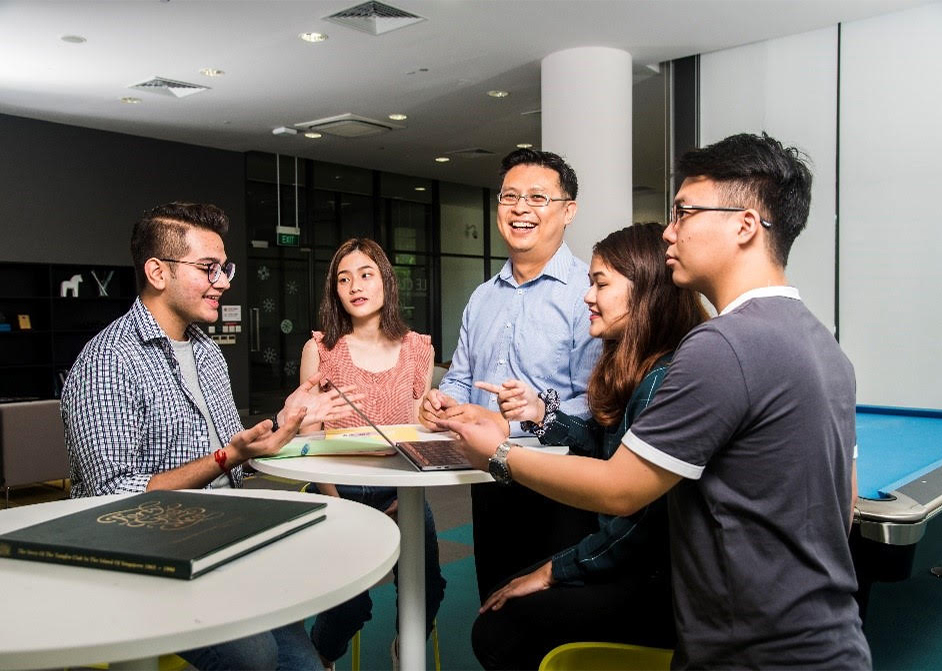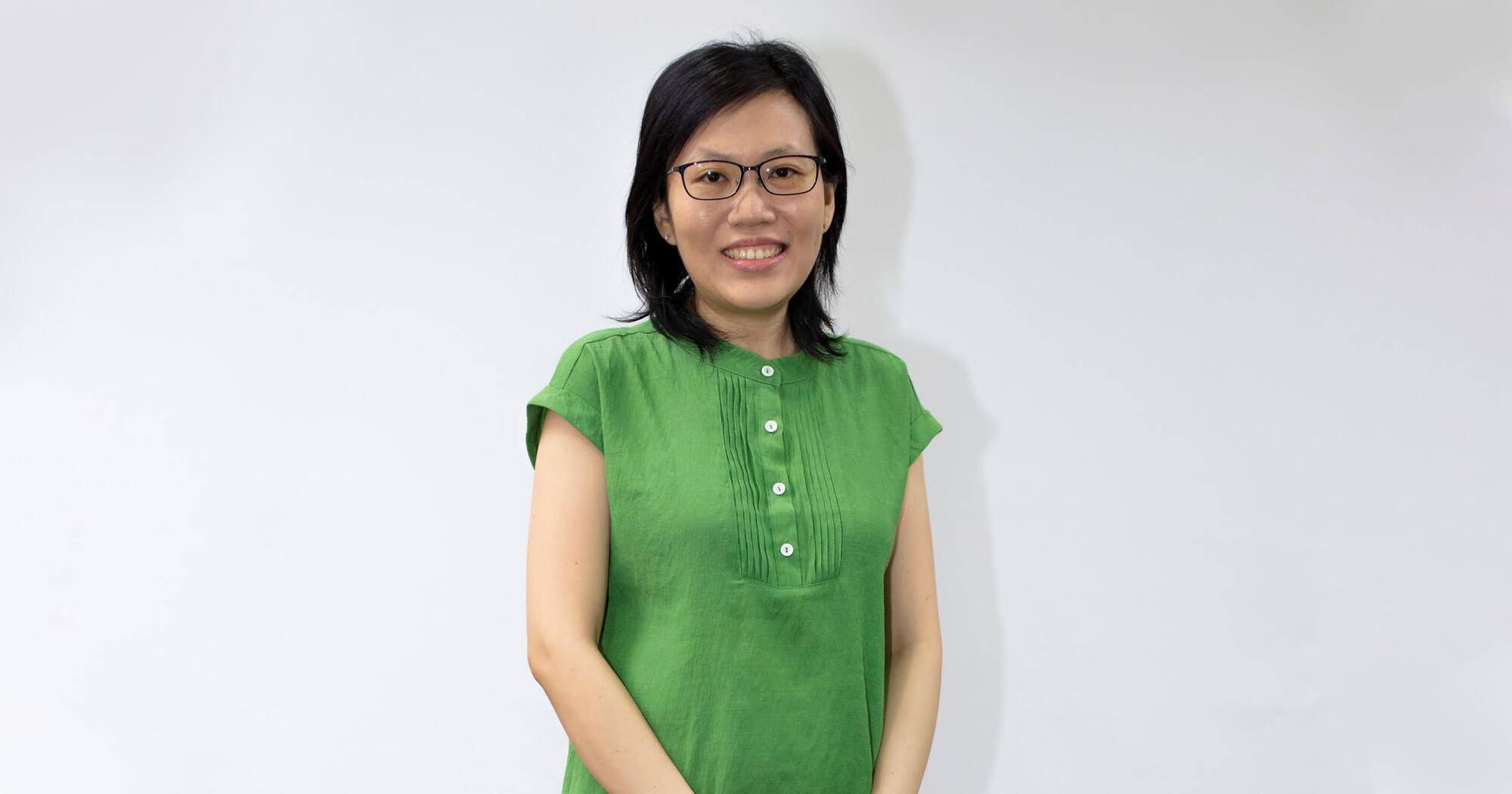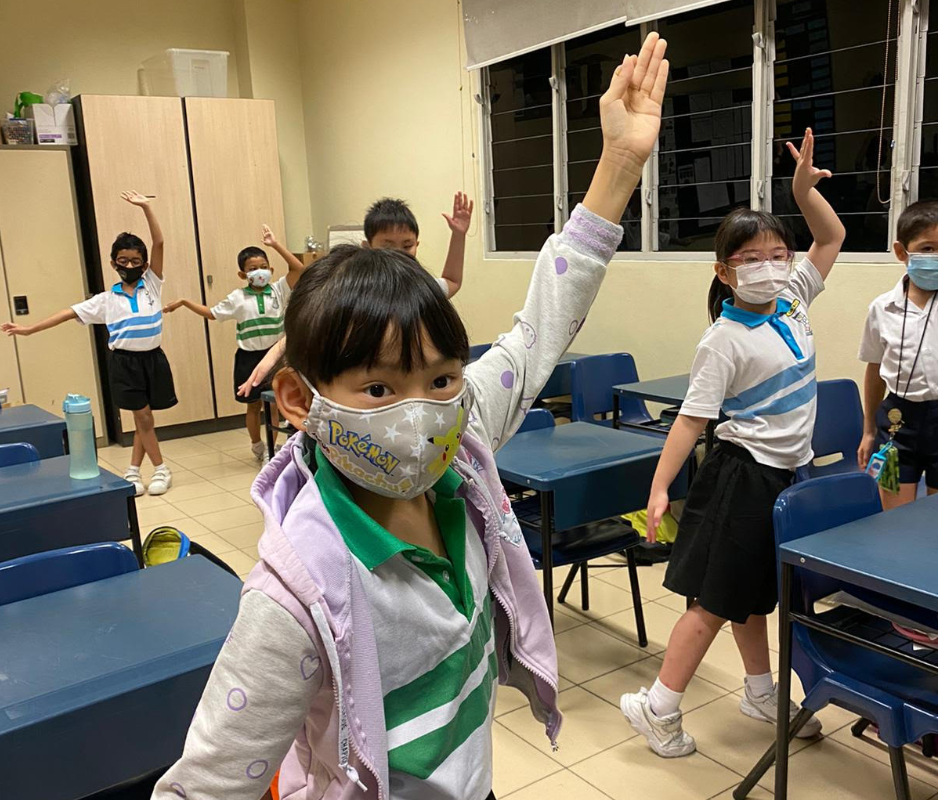Mr Ng Chee Kuen Steven,Temasek Polytechnic, President’s Award for Teachers 2019 Finalist
In his previous job, Steven Ng worked in sales and marketing for a multinational corporation. Whenever his colleagues needed advice, they would gravitate towards him.
“I was kind of a counsellor for them,” he says. His colleagues noted his even-tempered personality and penchant for mentoring.
Therefore, it seemed like a natural move for Steven to make a mid-career switch to
education after eight years in the corporate world. Having majored in finance and
marketing at the National University of Singapore (NUS), he started teaching marketing research at Temasek Polytechnic (TP).
“In the past, I needed to understand the needs of customers. I’ve translated that to being
student-centric, and finding out where my students are coming from.”
As digitalisation disrupts the marketing industry, he proactively reviews and updates the
digital marketing curriculum. To do that, he took up an industrial attachment with a digital
marketing agency to keep up with the latest trends in the sector.
“I read quite a lot of journals,” he says. “But I also needed to practice in order to show the way to my students.”
After updating the digital marketing curriculum, he promoted a more hands-on approach
in his classes.
“Right from the start, I realised that teaching was not just standing there, to be the ‘sage’
on the stage and delivering content,” says Steven, who has earned a Master’s degree in
education since going into teaching. “Those days are gone.”
“Google and YouTube might even do a better job,” he quips. “So, [classes] have to be
interactive. I have to ask the right questions and assess whether students are able to
understand or not.”
As such, he prefers to divide students into pairs or small groups. By not allowing students to “hide” in lectures, Steven can suss out which students have understood and which students have gaps in their learning.
Empowering Learning
Given the fast-moving and ever-changing digital marketing landscape, Steven considers
what he teaches in the classroom as a first step in learning for his students.
“Honestly, textbooks [in this field] tend to be outdated by the time they are published. We
give students a foundation by teaching them the principles. It’s important for them to learn continuously.”
To aid his students’ learning, Steven has sought innovative teaching resources.
“The difficulty of learning social media marketing is that we cannot simply take over the
account of a real-world company and apply what we have learnt in class,” he says.
The next best thing was the discovery and use of sophisticated simulation games, which Steven introduced after networking with the head of a digital courseware company. In addition, he secures internships with charities, for his students to put their knowledge, such as in Search Engine Marketing (SEM), into practice.
Such partnerships have extended overseas as well, with students going on service trips. They carry out research in a foreign market, before working with non-governmental organisations to implement strategic marketing plans that support local charitable causes.
A former student leader from his days at NUS, Steven is also a firm believer in student-led initiatives. Hence, he is active in overseeing a Marketing Interest Group on campus.
“We want students to learn outside the classroom as well,” he says, pointing out that soft skills are often developed outside formal classes.
With the interest group, students can organise activities such as camps, take on leadership positions and mentoring roles, and run social media accounts.
“This is a more holistic form of student development,” he says. “Critical thinking, communication skills and teamwork are the types of soft skills that are really key for the 21st century. We have to make learning more holistic for our students.”
Being Human
Through all this, what matters most is being able to relate to students and understand their learning needs.
“When students don’t do well, I’m always interested to find out why. I have a research background, so I tend to have a more investigative approach,” says Steven.
His student-centric approach came into play when he supervised a student who had lost his eyesight. Some of Steven’s colleagues were concerned about how to help the student, Joshua Tseng, achieve his learning objectives.
“Marketing involves the use of visuals. You need to look at certain things, such as advertisements and promotion materials in order to critique them. We decided to find ways to work around these challenges.”
Steven volunteered to be Joshua’s Care Person in school. This meant leading in efforts to find solutions to the problems, such as working with a non-profit organisation familiar with assistive technology devices, and making lessons and assignments accessible to Joshua.
Steven didn’t mind the extra effort because he saw “a lot of potential” in Joshua, who has since completed a successful internship at a hotel, graduated from TP and garnered a scholarship for further studies at the Singapore Management University.
“As an educator, if you want to be inclusive, you have to think ahead, see what challenges lie ahead and think of ways to overcome them,” he says.






